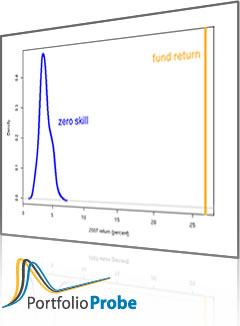Several practical steps.
Executive summary
A great goal, but can it deliver?
I was skeptical. However, I’ve been won over — the book proposes several specific actions that are feasible and powerful.
Culprits of the crisis
The book starts with an accounting of the culprits who caused the financial crisis of 2007-20??. Pretty much everyone, but in different ways.
Market efficiency
The efficient market hypothesis is about efficiency in information. The efficiency that we really want is efficiency in the allocation of resources. Those are not the same. The herding of the crowd drives the market farther from allocation efficiency even if it is efficient in information.
Benchmarks
The book does not speak kindly of benchmark tracking. For instance:
Less-skilled managers mask their lack of stock-picking ability by staying close to the benchmark. Managers with greater skill, on the other hand, limit their potential to demonstrate it when they succumb to benchmark tracking.
I have said something similar about tracking error constraints.
The author’s key point on this subject is:
Measuring short-term performance relative to a benchmark compels managers to focus on their own business and career risks at the cost of long-term results for their shareholders.
Investment performance measurement
The author advocates performance fees as opposed to fees on assets under management. One problem with performance fees is the possibility of the manager gaming the fees when they are under water. The author has a solution for this:
Longer measurement periods of rolling 36 to 60 months moderate volatility, lengthen the managers investment horizon, and reduce the chance that managers will assume excessive risk in the hope of increasing their short-term compensation.
The author suggests that there is another objection to performance fees:
Some may question the wisdom of performance fees when there is no objective way to untangle skill from luck.
I don’t think that is such a problem. While not perfect, random portfolios distinguish skill from luck.
Corporate performance measurement
The rewards of company managers should be large only if the company is truly outperforming. They should not be large just because the stock market has gone up in general nor because of accounting tricks and similar manipulations.
The author suggests that stock option plans need to be indexed in order to avoid automatic payouts in bull markets and no possibility of payout in bear markets. How best to choose the benchmark is not easy, but pretty much any benchmark will be better than the present practice. The book includes a discussion of “equity premium option plans” (EPOP).
How big should the rewards be? The book seems to think that they need to be relatively large to be effective. Evidence presented in the book Drive suggests that that may not be true — that smallish rewards may be at least as effective.
The book fails to talk about a suggestion for long-term corporate compensation that I like but don’t know the origin of. The idea is that instead of stock or options the grant is of the non-transferable right to the dividends on x number of shares for some period of time. I presume the period in mind is a few decades.
Accounting
Suppose we had a system where the actual value of a quantity was known only vaguely but the system depended heavily on the value that we select as the estimate. Trouble ahead, right?
The author’s response: Don’t do that.
He suggests that accounting values that are really forecasts should have:
- most likely value
- optimistic value
- pessimistic value
This is a practical approach that backs off from the ideal:
In an ideal world, companies would present accrual estimates as probability distributions, revealing the likelihood of all possible outcomes. However, we don’t know what the underlying distribution for uncertain long-term business outcomes looks like.
Interface between corporate and investing
Corporations and fund managers dance with each other around earnings. Earnings are visible, value is not so visible. The earnings dance has a way of destroying potential value.
The bright path seems dim;
Going forward seems like retreat;
The easy way seems hard;
from Chapter 41 of Tao Te Ching
Favorite sentence
Page 98:
No board should approve an incentive plan that can provide the CEO with significant remuneration for performance that could also reasonably serve as grounds for dismissal.

Pingback: Monday links: conditioned for disaster | Abnormal Returns
Pingback: Performance measurement is about decisions | Portfolio Probe | Generate random portfolios. Fund management software by Burns Statistics